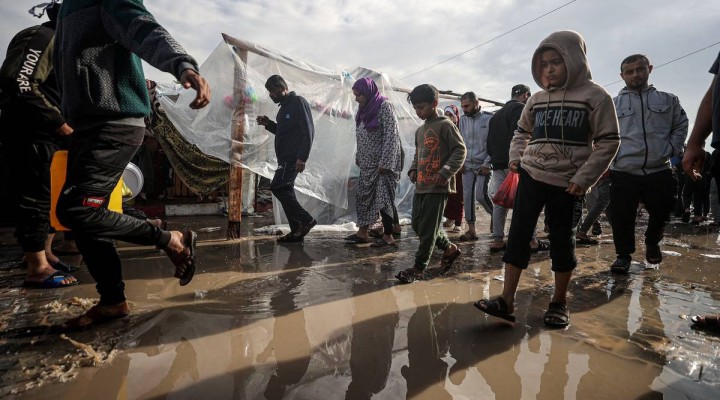The humanitarian paradigm and the normalisation of forced transfer

The despicable diplomacy which is allowing Israel to ethnically cleanse the Palestinians from Gaza is spoken of mainly in terms of the humanitarian pause, the new catchphrase that allows the international community to pretend it is invested in Palestinians’ humanitarian well-being. The US keeps voting against resolutions of temporary respite as their narrative still hinges on Hamas. The same goes for the UK and its complaint that the recent resolution “could not clearly condemn” Hamas. Russia, meanwhile, voted against the resolution due to it not calling for an immediate ceasefire. A ceasefire is a starting point, but will achieve little long term if there is no concentrated effort for decolonisation.
The international community fails to call out Israel colonisation, so decolonisation will not happen anytime soon. And if Israel has its way, it will involve direct complicity in the ethnic cleansing of Palestinians from Gaza, as Knesset members Danny Danon and Ram Ben-Barak, former Israeli ambassador to the UN and former deputy director of the Mossad respectively, have indicated in a recent op-ed.
“It is imperative that the international community explore potential solutions to help civilians caught in the crisis,” wrote Danon and Ben Barak after completely misrepresenting Israel’s colonial violence. Citing the example of former Yugoslavia, their first suggestion was for “countries around the world to accept limited numbers of Gazan families who have expressed a desire to relocate. The international community has a moral imperative – and an opportunity – to demonstrate compassion, help the people of Gaza move toward a more prosperous future and work together to achieve greater peace and stability in the Middle East.”
Danon and Ben Barak couldn’t have been clearer. Israel has the impunity which allows it to act without any moral imperative. The moral imperative is then incumbent upon its international allies, which are expected to provide humanitarian relief that in turn facilitates Israel’s colonisation of Gaza.
Ethnic cleansing has nothing to do with a desire to relocate, which is a decision based on free movement. Palestinians in Gaza have been forcibly displaced. A “genocide” is unfolding before our eyes. They have not embarked on a journey to relocate on the whims of Israel’s colonial plans. The cruelty with which such a suggestion is made to look purportedly moral should have the entire international community hanging its head in shame. This current scenario in the ongoing Palestinian Nakba is what the international community worked towards when it voted for the 1947 Partition Plan and when Israel was admitted as a UN member state. In the present-day circumstances, the international community debates about humanitarian pauses and other ludicrous conjectures, while Israel alters the definition of voluntary relocation to fit its forced transfer of the Palestinian civilian population in Gaza.
It’s useless to ask where Israel’s moral imperative is, because colonial entities have no capacity for morality.
That being said, neither does the international community. This latest step in Israel’s colonisation of Palestine exposes many flaws in the international community’s construction of “the Palestinian question”, a term which is dehumanising and dissociates the land from the people and vice versa. Danon and Ben Barak have grasped the dynamics of the humanitarian paradigm all too well in terms of its exploitation and the normalisation of colonial violence. Short of a unified stance against Israel and its colonial violence, nothing the international community does will ever compensate for the horrors it inscribed with its recognition of the Zionist colonial project in Palestine.
https://www.middleeastmonitor.com/20231116-the-humanitarian-paradigm-and-the-normalisation-of-forced-transfer/
 TheAltWorld
TheAltWorld 
0 thoughts on “The humanitarian paradigm and the normalisation of forced transfer”